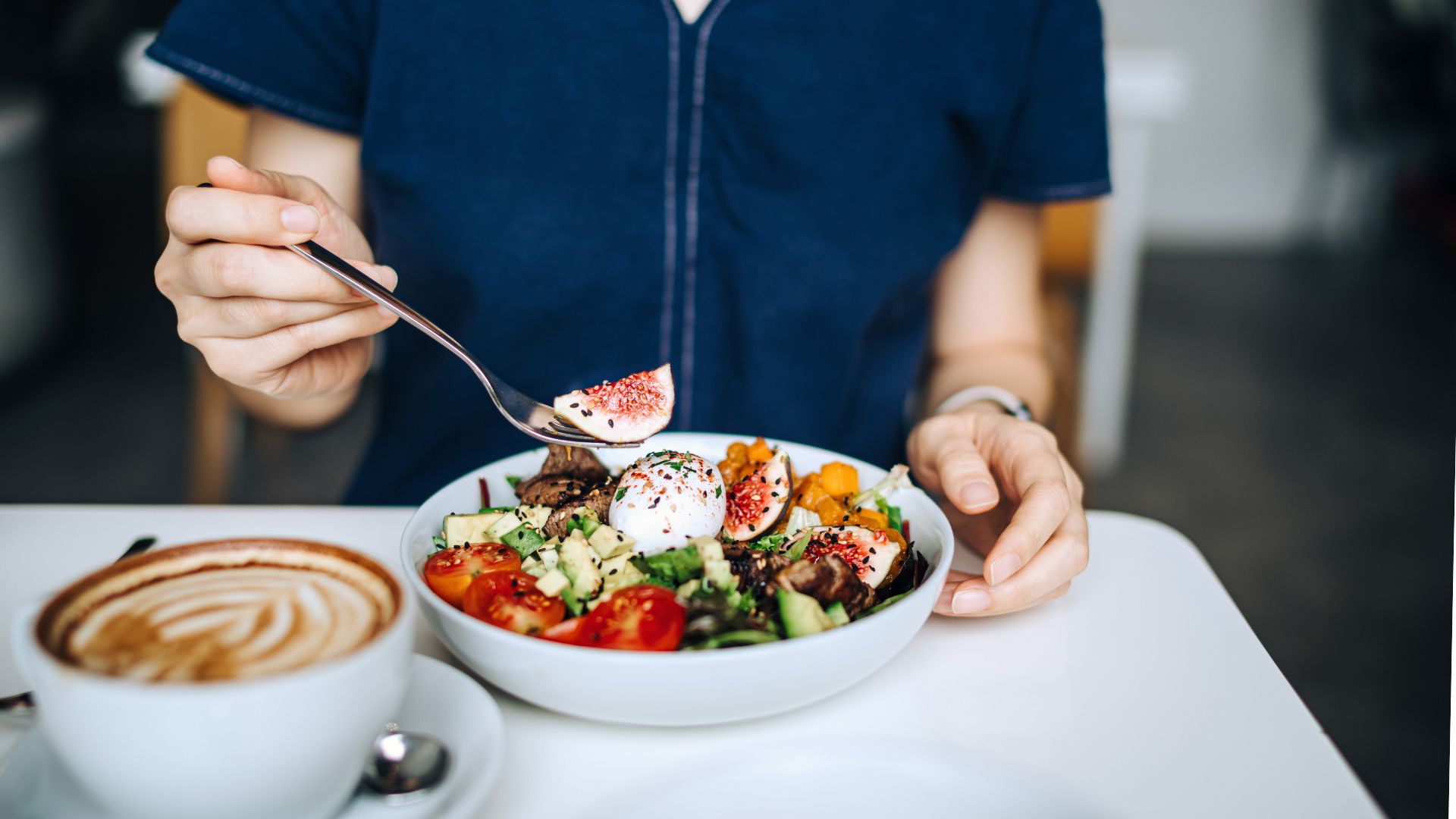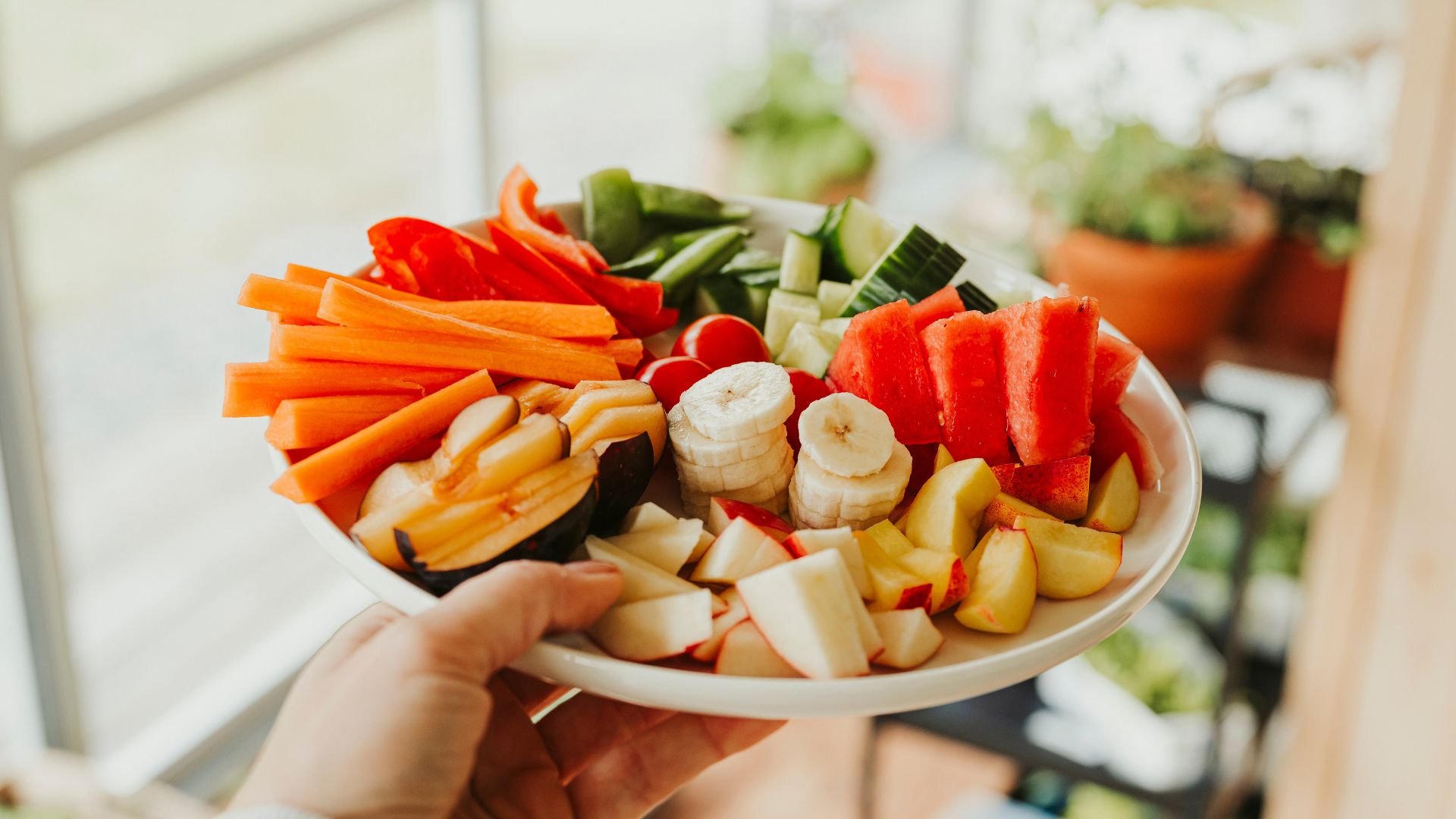
We've been told for years to avoid eating too close to bedtime and to stay away from caffeine and alcohol for better sleep, but a new study has highlighted the role that certain food groups can play in our ability to doze off.
Sleep is probably one of the most discussed issues among women of our age. We’re not getting enough of it, it’s disrupted, and we feel constantly tired, always wondering how to sleep better. I’ve tried many things, from using magnesium oil on my feet to changing my exercise routine to reduce my cortisol levels. I still feel tired most days.
Being tired does seem to be part and parcel of our daily lives, but as we go through perimenopause, sleep issues can start to get worse. This might be because of hot flashes, insomnia, or anxiety - or diet. If you’re not eating the right foods to fuel your body, you’ll be tired during the day. This could lead to cravings for high-carbohydrate foods or sugary foods, which will be a short-term energy boost but may stop you from sleeping at night, creating a cycle of poor sleep.
Researchers in Japan have looked at which foods we should be eating to get the most from our time in bed. After examining data from sleep and diet tracking apps for almost 5,000 people, they found that those who followed diets rich in protein and fibre slept longer compared to those eating high-calorie, fatty foods. "Greater total energy, fat, and sodium intakes were associated with shorter total sleep time, whereas greater protein and dietary fiber intakes were linked to longer total sleep time," the researchers wrote in the Journal of Medical Internet Research.
They also found that people who eat more fibre fall asleep quicker and wake up fewer times during the night. The scientists admitted that the differences weren’t huge, but the participants who ate the most protein averaged over a quarter of an hour more sleep per night.
Eating high-protein foods is thought to increase our body’s production of serotonin and melatonin, two hormones we need to regulate sleep, with another study in the Nutrients Journal saying that “a balanced diet rich in plant-based foods enhances the production” of sleep-regulating hormones.
Researchers also believe that fibre and its impact on our gut bacteria may also have the same effect. “Imbalances in microbiota composition may be associated with the onset of sleep disorders as well as other chronic conditions, including obesity, cardiovascular diseases, and mental disorders," the study says.
Eating a good amount of fibre will also keep you fuller for longer, which may prevent any nighttime hunger pangs from waking you up.
One limitation of the new study is that we don’t have any data on the amount of exercise the participants did and other variables, such as when they ate their meals. With the knowledge that exercise helps us sleep better and the role that meal timing plays in digestion, this is important.
However, researchers are confident that this evidence highlights the important role of dietary changes in improving the quality and quantity of our sleep. "Dietary intake and sleep are known to have a bidirectional relationship," they say. "The intake of healthy foods is associated with improved sleep quality, whereas consuming processed foods and foods high in free sugars has been shown to deteriorate sleep quality".

High protein and fibre foods examples
High-protein foods include meat, dairy products, nuts, some vegetables, and grains. Most women will find they need to aim for 0.8g of protein per kilogram of body weight. However, how much protein you need is very personal. If you do regular exercise, you'll likely need more than this, so always consult your doctor if you have concerns.
Some examples of protein-rich foods include:
- Lean chicken, beef, pork and turkey
- Eggs
- Fish such as salmon, tuna and mackerel
- Milk, cheese and yoghurt
- Almonds, hazelnuts, peanuts, chia seeds, pumpkin seeds
- Kidney beans, chickpeas, edamame beans, black beans.
- Quinoa
- Tofu and tempeh
The NHS says you should aim to eat around 30g of fibre every day, but research shows we're not getting nearly enough of it. You can find it in high-fibre breakfast cereals, wholewheat bread, vegetables, pulses like beans, lentils or chickpeas and fruit.
Foods to avoid when it comes to good sleep
- Saturated fats found in processed foods and fast foods: Meals like burgers and chips should be avoided too close to bedtime because they can prevent deep sleep, also called slow-wave sleep.
- Refined carbohydrates: White pasta or bread, for example. These will be metabolised quickly by your body, leaving you hungry.
- Alcohol: While it might make it easier to fall asleep, the quality of your sleep will likely be quite poor, and you may experience more night-time wake-ups.
- Caffeinated drinks: Logically, a drug that makes you feel more awake will not be best to have before going to sleep, but consuming caffeine even up to six hours before you sleep can block your production of the hormone adenosine, which promotes sleepiness.







